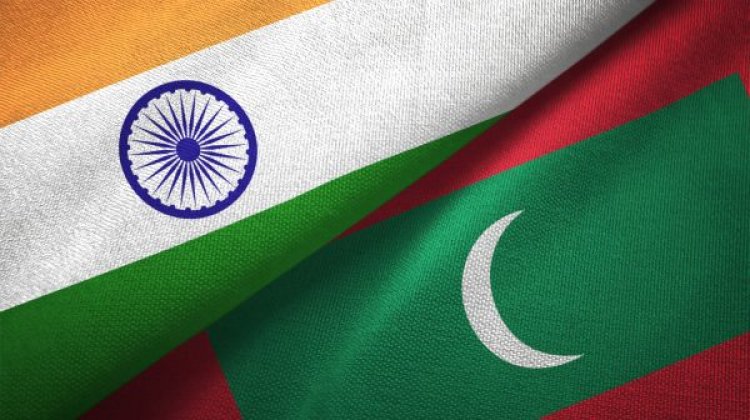India - Maldives: Maldives Revoke Agreement with India for Joint Hydrographic Surveys in Maldivian Waters
STORIES, ANALYSES, EXPERT VIEWS

Trust between India and the Maldives is at a low ebb since the election of Mohamed Muizzu as President in November 2023. There has been a deliberate, if predictable, attempt by Male to create a distance with New Delhi.
The Maldives has formally asked New Delhi to withdraw its Indian military presence from its shores. Abhijit Singh (Head of the Maritime Policy Initiative at the Observer Research Foundation (ORF), New Delhi) focuses on the recent decision by the Maldives to revoke an agreement with India for joint hydrographic surveys in Maldivian waters. This has caused considerable dismal in strategic circles. “Inked during Prime Minister Narendra Modi’s visit to the islands in 2019, the pact was seen as a symbol of India-Maldives defence ties."
The Indian Navy has rendered hydrographic assistance to Mauritius since the 1990s, charting the vast Mauritian EEZs and helping build capacity, even assisting with the setting up of a hydrographic unit for skill development among Mauritian hydrographers.
The Muizzu administration’s refusal to renew the hydrography pact “seems less to do with the President’s sensitivities about sovereignty than with his special relationship with Beijing. Getting Indian hydrographic ships out of Maldivian waters appears intended to aid China’s marine surveys of the surrounding seas.”
Hydrographic data to enhance strategic agenda
Hydrographic data inherently, states Singh “has a dual nature in that the information collected from the seas can be used for civilian and military purposes…..” China uses its marine and seabed surveys “to advance a largely strategic agenda. The country has an expansive oceanographic research programme, in which ‘scientific research vessels’, in particular the Shi Yan class of oceanographic survey vessels and the Yuan Wang series of intelligence-surveillance-reconnaissance ships are regularly deployed in the Indian Ocean…..For China, however, marine surveys and reconnaissance are critical enablers of the People’s Liberation Army Navy’s maritime strategy in the far seas. It is no happenstance that Chinese authorities approached Sri Lanka and the Maldives many times last year to allow the docking of marine research ships.”
Indian concerns on China’s surveys
Indian observers point out that China’s ocean surveys play an important part in enhancing China’s antisubmarine warfare capabilities. The mapping of the ocean’s temperature profile and the study of other oceanic phenomena such as currents and eddies, they contend, is meant to improve sonar performance and detection of enemy submarines. Studying the marine environment also aids in the development of systems that help Chinese submarines elude detection and fine-tune tactics for littoral combat.
However, writes Singh “China’s oceanographic surveys in the waters of friendly South Asian states are potentially hampered by the presence of Indian hydrographic ships in the area. The Indian Navy has the capability to track foreign ships’ subsurface sensor activity. Chinese hydrographers suspect the Navy’s operations in the waters of Indian Ocean island states could interfere with China’s own marine survey efforts.’
Meanwhile, there is speculation in New Delhi of a Chinese plan to develop a naval base in the Maldives. In 2018, China planned an ocean observatory in Makunudhoo Atoll, north of Male — not far from India’s Lakshadweep Islands. Maldivian opposition leaders had then expressed reservations about the observatory’s potential military applications, including a provision for a submarine base. Although there is no evidence yet that China has revived that proposal, but according to Singh “recent developments suggest that the possibility cannot be discounted.”
















